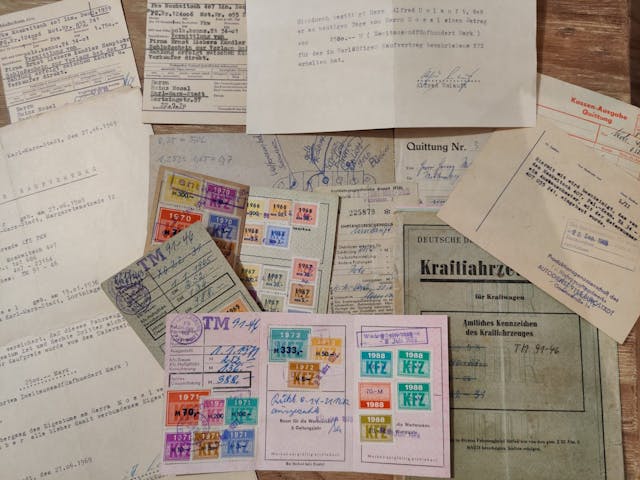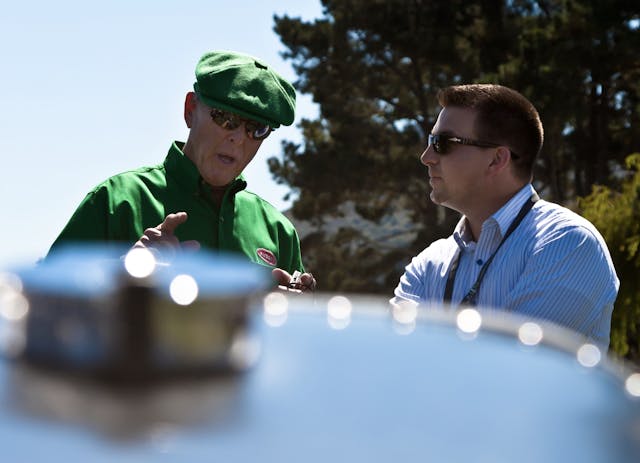How to determine the value of a car after it has been destroyed

In addition to benefitting from a trove of data, Hagerty Insider also relies heavily on the expertise of veteran market watchers, including Dave Kinney, appraiser and publisher of the Hagerty Price Guide. He will answer often-asked questions about collector car values and buying and selling. Though Dave can’t put a value on an individual car (that’s what people pay him to do in his appraisal business, after all), he can field questions about the appraisal process, how to go about buying and selling classics, and the industry as a whole. Have a question of your own for a future article? Ask in the comments section.
Post-mortem appraisals
My car was destroyed in a garage fire last year. There was no insurance, and it was stored at a buddy’s house, so my own insurance company denied the claim. Can I hire an appraiser to estimate the value before the fire? I plan on taking a loss on my taxes.
DK: First off, I’m sorry, as that must really sting. I’ll only answer the appraisal question here and not the tax one—trust me, you do not want any tax help from me!
The quick answer is yes, your appraiser can do a hypothetical appraisal based on photos, receipts, and even by interviewing your mechanic, a friend who knew the car, and possibly even your ex-. Hypothetical appraisals are even done when the objects no longer exist (destroyed, lost, or stolen) or are in the possession of someone who denies access to the car (again, possibly that pesky ex-).
Many of the appraisers I know have a pretty good radar when they are being sold a bill of goods. Put another way, if the car was as good as all the show-winning examples, why was it never shown? You loved the car as much as life itself, but the only photos you have were grainy ones of only one corner, and it looks like you used a potato for a camera? These are warning signs to a good appraiser that you are attempting to lead them in a different direction than the truth. Work with the appraiser and not against them. You want the most accurate value, unless your plans are other than straight up. I have and will continue to walk from jobs that stink going into them, or ones that start to stink when things get complicated.

What’s up, docs?
I recently bought a car where the appraiser missed a bunch of documents that came with the car. When I talked to the seller, he said he didn’t give them to the appraiser because he thought they were not relevant to the value of the car he was selling. The appraiser said it would have changed his valuation. Who is right here?
DK: I really don’t understand why a seller would willfully withhold documents from someone who is trying to find an accurate value of their car. Answering that in the form of a question, you might ask why the documents were withheld. My own answer is easy: I would think the seller was trying to lead the appraiser (and the buying public) astray.
Appraisers are not clairvoyants; they can only witness what they can witness. If something is not physically present, people will have no way of knowing. Sometimes repairs and paintwork are easy to find, other times they can be well hidden. Many appraisers use paint gauges to see if the panels are resprayed. There are many cases in which a conventional paint meter can give numbers that are misleading or even useless. An electronic meter on a composite or fiberglass piece is one example.
I will normally ask a client for all the paperwork they have with their car. Sometimes, the amount is overwhelming, and I’ll have to triage what is important (a recent valve job) from what is not (a gas receipt from 1998). A complete, solid appraisal is dependent on as much relevant information as is available.

Who’s right?
I’m donating a car and I got two different values from two different appraisers. They are about 15 percent apart. Is this normal?
DK: Yes, this is certainly possible. Appraisers give an opinion of value. One appraiser might choose a different set of market examples (what we used to call comps) from the other. Or one might emphasize a car’s 50-year race history while another makes a bigger deal about its current cosmetic condition.
If I was in this situation, I would get in touch with both appraisers and ask them to review each other’s document. Working together (it’s not a horse race, it’s an appraisal) they should be able to reach a consensus of opinion. If either of the appraisers’ egos gets in the way, this collaboration might prove difficult.
If that solution is not going to work, read each of their documents again. Was the purpose of the appraisal listed as “donation” or something different, such as asset valuation? Was the market level “Fair Market Value,” or another type of value? With estate work, Fair Market Value is the appraiser’s only choice for presentation to the government.
Finally, who has the best document, showing the most thorough work and a reasonable result? Fifteen percent is not a lot on a $30,000 donation, but it is on a million-dollar donation. Will the documents be reviewed by the IRS? I don’t know that answer, but I prefer sleeping over doom-scrolling at night.
***
Check out the Hagerty Media homepage so you don’t miss a single story, or better yet, bookmark it. To get our best stories delivered right to your inbox, subscribe to our newsletters.


I have been working full time as an appraiser for 30 plus years. I always advise owners to provide me with any and all information/documentation regarding the vehicle. The more information provided to me the better and more accurate my report will be. I can then review and analyze this information as part of my research process to determine a reasonable fair market value.